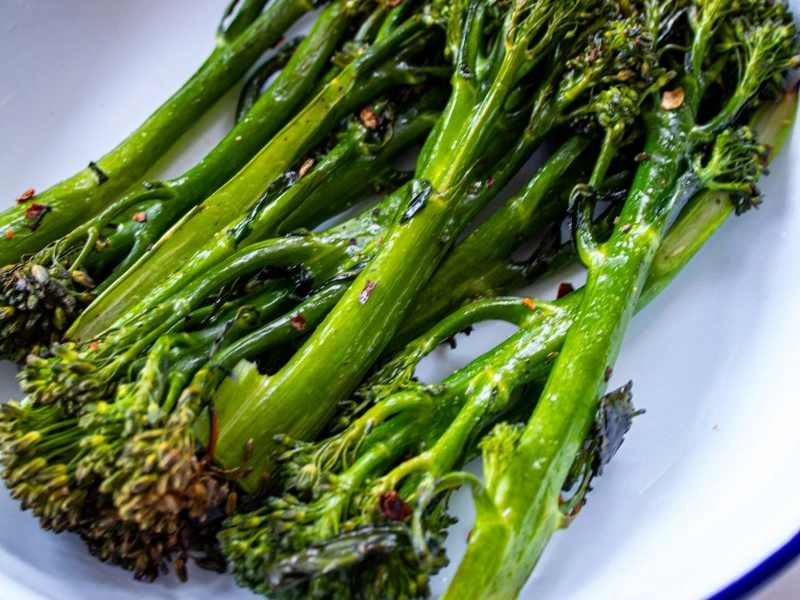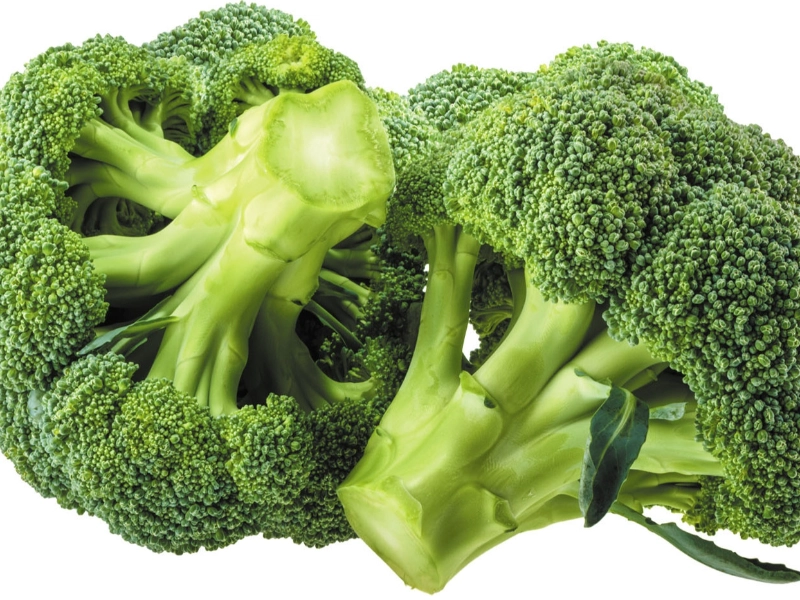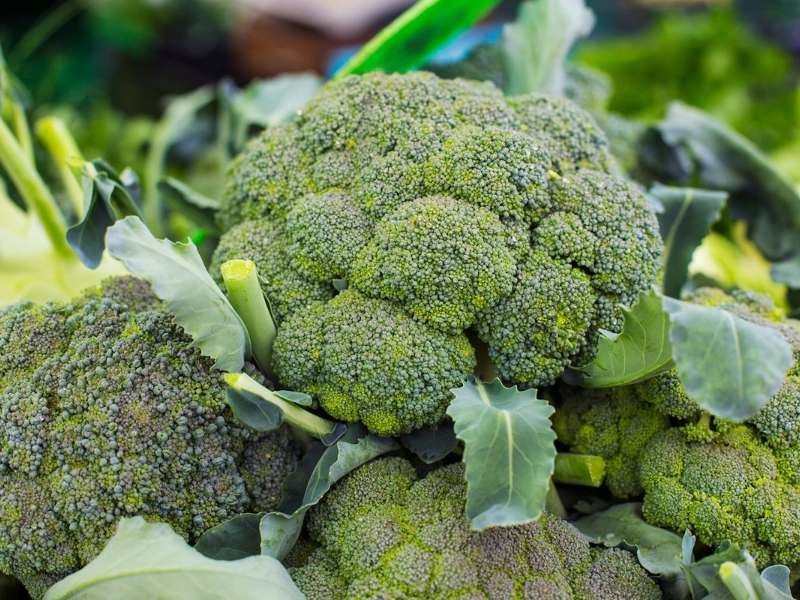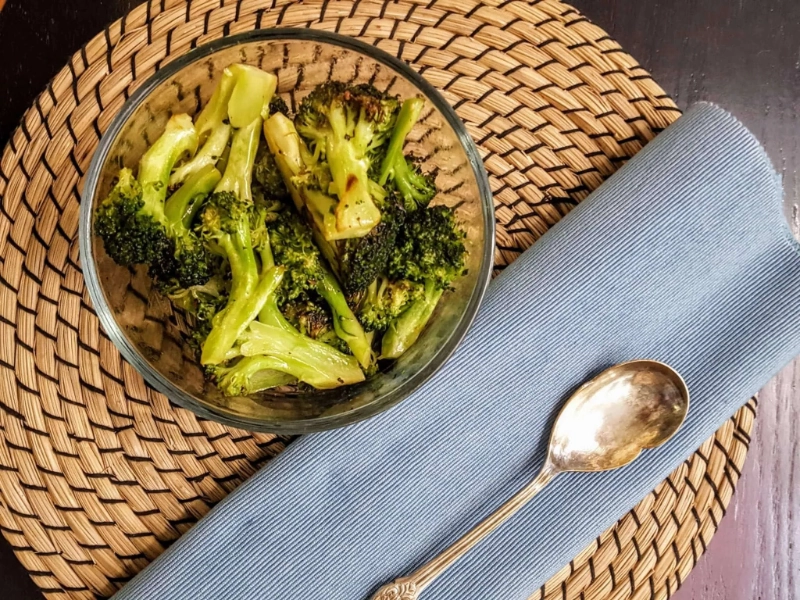With good cause, broccoli is sometimes considered as a superfood. Not only is this vivid green vegetable great, but it also loaded with vital nutrients—especially vitamin K, which is absolutely vital for preserving blood integrity. Knowing the advantages of broccoli and how it affects vitamin K levels can inspire people to include this healthy food into their diets. This post explores the value of vitamin K, the health advantages of broccoli, and doable ideas for integrating it into your food.

Mostly by means of its participation in the process of blood clotting, vitamin K is a necessary nutrient that is absolutely important for blood health. Vitamin K helps activate proteins needed for coagulation when a blood vessel is damaged, therefore stopping too much bleeding. The body battles to build clots properly without enough vitamin K, which can cause other major health problems like extended bleeding. Apart from its ability to clot, vitamin K supports cardiovascular and bone health. It guarantees correct calcium deposition and helps control calcium in the blood vessels and bones. Given this dual function, vitamin K is a vital nutrient for general health; broccoli is among the best natural sources of it.

A nutritious powerhouse, broccoli provides a broad spectrum of minerals and vitamins beyond only vitamin K. Rich in vitamin C, fibre, and many antioxidants, this cruciferous vegetable helps with health in several ways. While dietary fibre improves digestive health and helps control blood sugar levels, vitamin C is necessary for preserving a strong immune system and encouraging skin health. Furthermore included in broccoli are substances called glucosinolates, which have been investigated for their cancer-fighting power. These chemicals might lower the risk of some kinds of cancer and help shield cells from damage. Including broccoli in your diet can help you to benefit from its varied nutritional profile, so boosting not only blood health but also general well-being.

Including broccoli into your diet is flexible and simple. Whether steamed, roasted, stir-fried, or consumed raw, this vegetable can be eaten in a variety. Including broccoli into salads is one easy approach to appreciate it. Apart from increasing the nutritious value of your meal, raw broccoli florets give a pleasing crunch and vivid colour. Steaming or roasting broccoli will help to improve its taste and preserve its nutrients for a warm dish. For a great side dish or throw it into pasta meals, casseroles, or soups for extra nutrients, pair it with olive oil and garlic. Another nutrient-dense beverage is a smoothie made from broccoli. There are countless options, which makes regular consumption of this nutritious vegetable simple.

Choose broccoli looking for firm stems and vivid green florets. Fresh broccoli should smell strongly and have a crisp texture. Steer clear of any yellowing or wilting; this suggests the veggie is past its best. Store broccoli in the refrigerator and eat it few days from purchase to maintain its nutritional value. Retaining the nutrients of broccoli depends equally much on cooking techniques. One of the greatest ways is steaming since it makes it soft and preserves its nutrient count. Aim for brilliant green florets that are still somewhat crunchy since overcooking could cause nutritional loss. Choosing fresh broccoli and cooking it correctly can help you to maximise its health advantages.
Apart from its vitamin K value, broccoli helps heart health in other respects. Sulforaphane among other antioxidants in broccoli help fight oxidative stress, a major factor for heart disease. Moreover, broccoli's fibre helps to decrease cholesterol and strengthen a cardiovascular system. Because of its potassium concentration, broccoli may also assist control blood pressure on regular ingestion. Maintaining good fluid balance and helping to offset the effects of sodium in the diet depend on potassium. Including broccoli in your meals will help your heart health while still providing a great and nouraging dinner.
Although broccoli is a great source of vitamin K and other minerals, it's important to keep a varied diet including different foods. Including several vegetables, fruits, whole grains, lean proteins, and good fats guarantees a wide range of nutrients needed for general health. Try for a vibrantly coloured dish since every colour denotes a particular phytonutrient and health advantage. Regularly including broccoli in your diet will help you boost your blood health and increase vitamin K consumption. Combine it with other foods high in nutrients to make well balanced meals that support general wellness. Recall that reaching ideal health depends on a varied diet, hence broccoli can be a major component in your dietary road map.